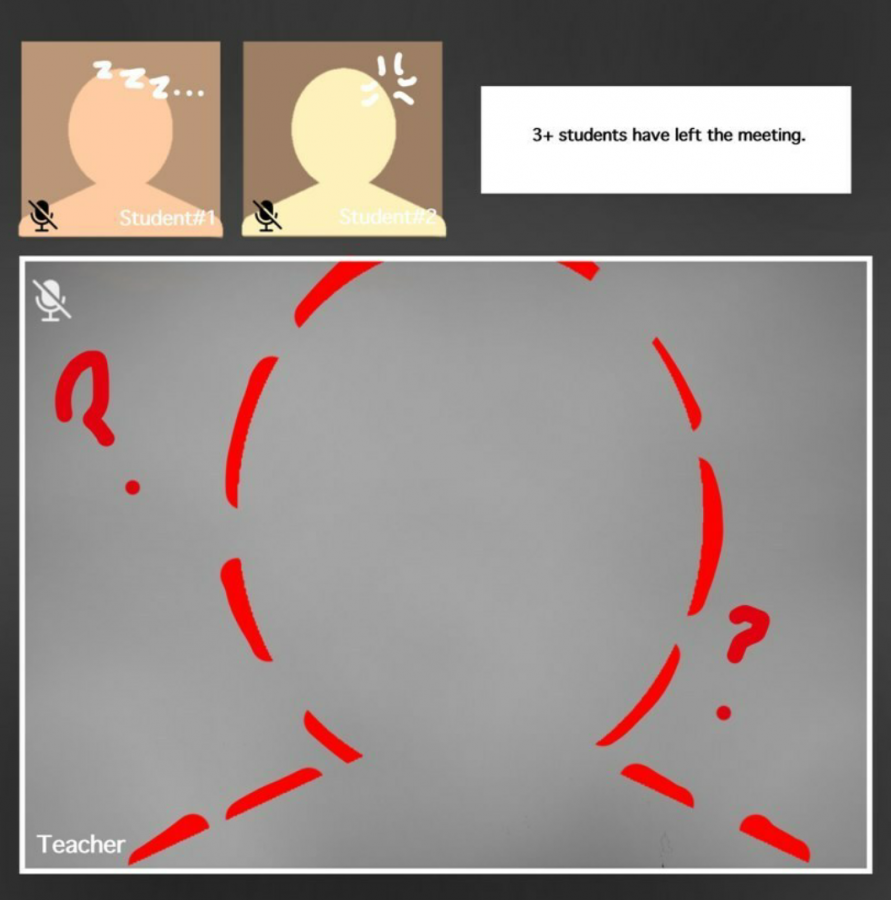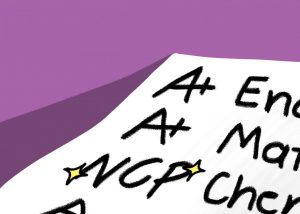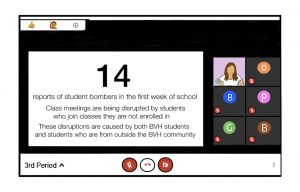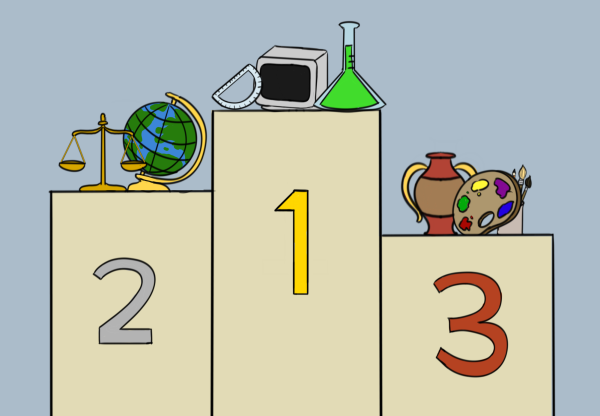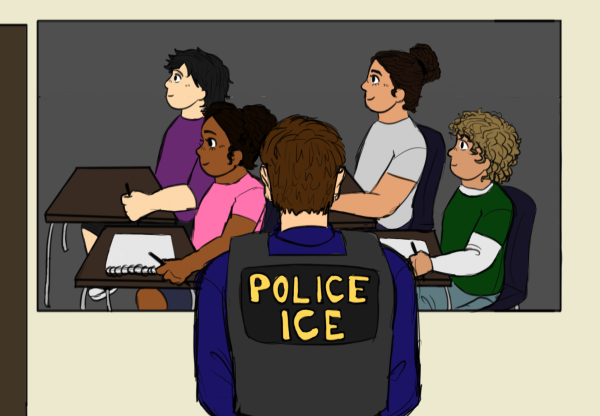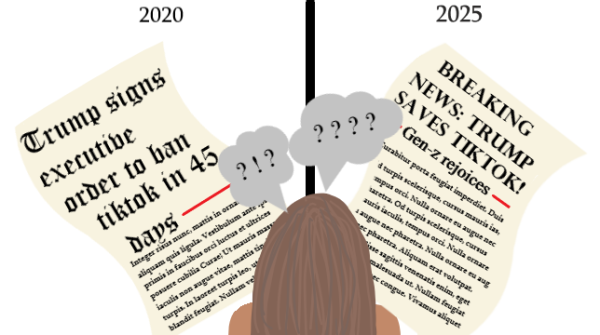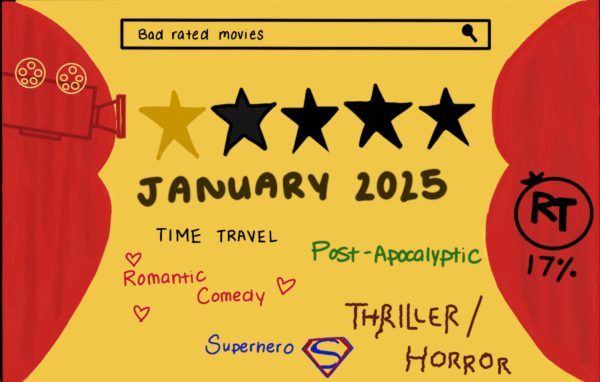All eyes on teachers
BVH should implement teacher evaluations
As this current school year has led to various teaching styles, it has been important to ensure students remain engaged in their classes. To do so students should be allowed to review their teachers, and tell them what works for them.
Before student life turned to the computer and the voices of teachers came out statically from a device, teacher-student relationships were easier to forge. Furthermore, a teacher’s performance was measured smoothly when school administrators could walk into a classroom and ask students questions.
However, with online classes, which are predicted to become the norm until the 2021-2022 school year, it is not convenient for administrators to enter a Google Meet or Zoom link to ask students, ‘What are you working on?’ without interrupting the class.
A new method needs to be implemented to keep teachers accountable for how they teach and the effectiveness of it. Who better to evaluate teacher performance than the students who see them everyday? This would not only work for students who see their teachers in class calls but for students who have completely asynchronous classes, helping to see what works and what doesn’t.
Creating an effective way to review teachers in their classroom can be done best when evaluators are accustomed to their personality, teaching style and their willingness to help students improve. For instance, the American Association of School Administrators (AASA) says that the education system is meant for students; they are the clients, so why not ask them for their thoughts on employee improvement.
To start off, whether classes are digital or not, some students are still seeing their teachers weekly and others are experiencing completely asynchronous classes. Throughout the school year, they are the ones that know their teachers best. Their evaluation would include: how their teacher taught them, their teachers’ attitude towards teaching and their teachers’ active support for their students.
In an article written for Frontline Education, it says, “Research had shown something remarkable: if you asked kids the right questions, they could identify, with uncanny accuracy, their most—and least—effective teachers. […] Their survey answers were more reliable than any other known measure of teacher performance—including classroom observations and student test-score growth.”
Of course, teacher performance is important as it is often reflected in student test scores and academic progress. Getting an accurate assessment on teachers is key to creating progressively astute students. If students are clients of the education system, then catering to their needs should be one of the first priorities.
Essentially, student performance reflects solely on their teachers and what they do to aid their students. An article published in Vanderbilt University’s newsletter describes the high correlation between the amount a student learns in a class and the overall rating of the teacher. Their studies show that, in general, “student ratings were the highest for instructors whose students performed best on the exams.”
Moreover, there is a difference between official student evaluation and the commonly used Rate My Professor website. Websites like Rate My Professor are more relaxed and unsuited to correctly evaluate teachers. For accurate teacher assessments, specific questions need to be asked in an environment where the students can feel a sober tone weighing on their responses. This is necessary for them to realize how critical their answers will be.
Even now, some Bonita Vista High (BVH) teachers conduct their own small scale evaluation surveys to receive feedback from students on how they teach. In these surveys, teachers ask their students what worked for them this semester, what didn’t work and what could use improvement. Additionally, teachers are making it clear that they are willing to help students with any academic or technical difficulties they have during distance learning.
Now more than ever, students’ evaluations of teachers are important. Distance learning has made what would normally be seen as simple, into a challenge that we must overcome.
Feedback from students will alert teachers to what methods need to be fixed and what methods have been easy and helpful to use. While creating a new system now may be difficult and chaotic, it will help students and teachers in the long run and will possibly be more effective when in-person classes begin. Starting now would only lead to further improvements in the future.
The education system is made for students. Thus, using as many methods as possible, including teacher evaluation by students, to ensure their success is only natural.

Hi readers! I’m a senior at BVH and going into my fourth and final year in the Crusader. I’ve enjoyed the past three years of being on staff and while...

Hello, I’m currently a senior at BVH and this is my second year on staff and I originally joined in order to expand on my writing ability. I can honestly...

